Selling Medical Billing Companies in a Pandemic Has the pandemic had a negative impact on business valuations in general and in the value of your medical billing business in particular?
In early 2020, our economy was running on all cylinders: businesses were thriving, medical billing companies were benefiting from the rise in the average income of individuals, providers were doing well. There was so much hope and optimism. Then, like a sucker punch to the back of the head, without much warning, COVID-19 changed almost everything. If you own a small business, like medical billing, credentialing, or software services in the healthcare sector, you have not been exempted from the negative effects of the global pandemic. Healthcare, fortunately, is one of the most resilient markets and will recover in time. But what if you had planned to sell your business last year, or this year?
Has the pandemic had a negative impact on business valuations in general and in the value of your medical billing business in particular? In short, the answers to those questions are “yes, but.” Impact of the Lockdowns/Slowdowns on Medical Billers Billing company owners took what action they could but were really caught between the proverbial rock and a hard place. They did not want to furlough employees but had to find ways to reduce expenses. They were forced to move from a mostly office-based setting to a work-from-home business. Most adapted, but they still had to pay rent and incurred a lot of lost productivity in the process. Fortunately, most billing companies were able to get EIDL and Payroll Protection Plan loans under the CARES Act, which encouraged owners to keep their employees on full-time to prevent even higher unemployment and a major national economic disaster. This saved some billing companies, short-term, but nothing from the government comes without strings attached. Many medical billing companies have a hybrid workforce with employees and independent contractors, including offshore BPOs that provide many critical services, primarily back-office data entry, coding, payment posting, etc. Companies using these outsourcing contractors thought this would protect them: they would not pay fixed costs if their contracts were volume or revenue based. However, India and other countries where these BPO contractors are located have been hit as hard or harder by COVID-19 than the U.S. and are less equipped than we to work from home. Companies have seen productivity from offshore contractors drop significantly in 2020. All of this has resulted in lower revenue without an equivalent reduction in expenses. Effect of the CARES Act on Billing Companies Seeking to Sell The time period considered for valuation is, mostly, the “trailing 12 months” or the 12 months prior to either the letter of intent or closing of the sale. This includes the “COVID” period for anyone wanting to sell in the next year or so. You may think, “What about the PPP loans? Didn’t that make up for the lost revenue?” Yes, for about three months or so for most billing companies, but the pandemic has gone on much longer than was originally thought. The other problem is that the PPP loan is not “revenue” on the P&L. It is a loan that shows up on your balance sheet. From a P&L perspective, most billing companies took a big hit in 2020. Yes, many are seeing some of this come back, but revenue and profitability is still volatile. Depending on what part of the country you serve, COVID-19 lockdowns and restrictions affect businesses differently. By now, most companies that filed for PPP loans have been able to file for forgiveness and most of the loan balance is off the books, so shouldn’t that resolve the problems? No. Remember, nothing from the government is free. The loan agreements between the billing company and the lending institutions for the SBA-backed PPP loans contained a clause that restricted the sale of assets or change of ownership of a company with an outstanding PPP loan without the express written consent of the lender and the SBA. Most lenders held up M&A deals from closing because they were following the SBA guidelines and were not willing to deviate or look for workarounds. For example, some lenders allowed the seller to set up an escrow account for the entire PPP loan balance, then close the sale, with the provision that when the PPP loan was forgiven, or not, by the SBA, the bank would use the escrow to pay off the unforgiven balance, thus protecting themselves from a possible loss. Other Factors Impacting Valuation
How Risk Affects Terms of a Deal We are seeing deals with less guaranteed cash and more deferred payments that are contingent to some performance criteria in an earnout. This gives more leverage to the buyer. Buyers are proposing other terms for added risk protection, including:
What You Need to Do to Be Ready to Sell in 2021 Second, identify clients that you are losing money on and either renegotiate the rates and/or systems/processes so you can make a profit or terminate them under the terms of the contract. Third, do your best to wean yourself from day-to-day operations and train up a person to take over under new ownership if you plan to leave. If you are planning to sell very soon, there are some things to avoid:
Selling your billing company may be one of the most important decisions you will make. If you are considering this soon, see a professional advisor to guide you through the process.
|


 Dave H. Perkins is a senior consultant with Abstract Business Advisors, specialists in healthcare mergers and acquisitions. Perkins is a sales and operations executive whose career reflects more than 45 years of accomplishments in healthcare IT, revenue cycle management, electronic health records, medical billing software, and medical practice management solutions. He is a strategic executive who has founded several medical billing and software businesses and currently specializes in healthcare M&A.
Dave H. Perkins is a senior consultant with Abstract Business Advisors, specialists in healthcare mergers and acquisitions. Perkins is a sales and operations executive whose career reflects more than 45 years of accomplishments in healthcare IT, revenue cycle management, electronic health records, medical billing software, and medical practice management solutions. He is a strategic executive who has founded several medical billing and software businesses and currently specializes in healthcare M&A.